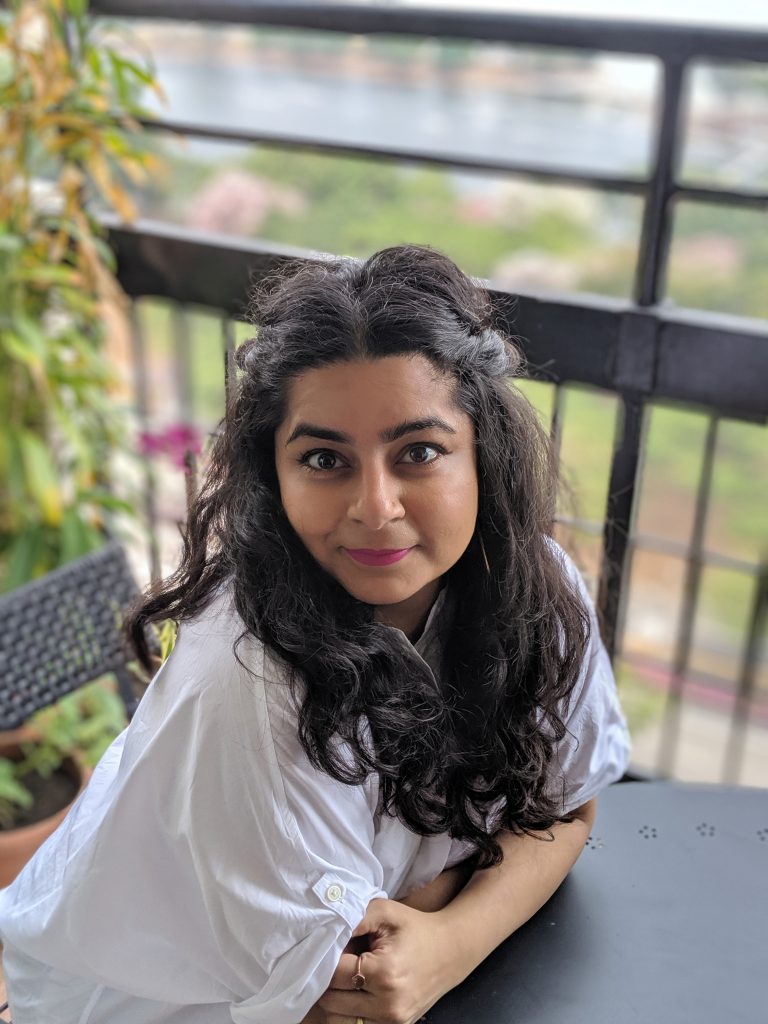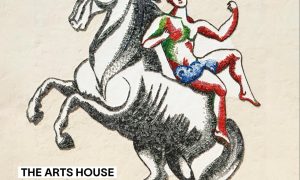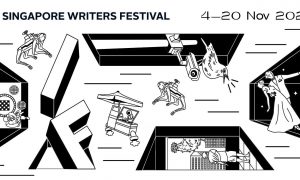By Ganesh Somwanshi
 The 23rd edition of the Singapore Writers’ Festival (SWF) will begin from 30 October to 8 November 2020 and has a diverse line-up of programmes. Apart from a new theme ‘Intimacy’, the festival will be launching a radio station, Night Spin 182.7.
The 23rd edition of the Singapore Writers’ Festival (SWF) will begin from 30 October to 8 November 2020 and has a diverse line-up of programmes. Apart from a new theme ‘Intimacy’, the festival will be launching a radio station, Night Spin 182.7.
Organised by the National Arts Council (NAC), the multi-lingual literary festival celebrates thoughtful discussion, a love for stories and encourages intercultural dialogue by bringing together writers, thinkers and participants from Singapore and overseas.
It is for the first time in the history of SWF that the festival will be presented online and the organisers hope to inspire discussions on how we can engage with each other digitally and connect despite being apart.
Insiderecent.com (IR) caught up with Pooja Nansi (PN, above), the festival director who recently took up the role:
IR: The festival’s theme is Intimacy, can you share more about the theme?
PN: This has been a whirlwind year! In a time of quarantine and social distancing, the festival team noticed that the pandemic has transformed communal experiences and interactions, which are now mostly taking place online due to the need for social distancing for the safety of all participants. As a result, we were inspired to explore the theme of ‘Intimacy’, and we hope to harness the power of literature in capturing this shared human need.
Due to the ongoing COVID-19 situation, we also had to relook the formats through which we deliver our programmes. Hence, the festival is adopting a digital format for the first time to reach audiences in Singapore and beyond.
With our diverse programmes where local and international writers have come together to reflect and rethink our relationships, loneliness and human connections, we hope to inspire discussions on how we can engage digitally and connect with one another despite being apart.
IR: What are some of the interesting segments that you have added in this year’s festival?
PN-: With each edition of SWF, we hope to engage festival-goers meaningfully with the literary arts and create a memorable and accessible festival experience. Amid the current saturation of online content, rather than attempting to replicate our physical festival, we have instead tried to create new digital experiences that will set SWF 2020 apart.
The offerings we have rolled out offer a strong mix of offline and online touchpoints that recreate a sense of intimacy between authors and audiences despite being physically apart. One such example is Artwave Studio’s participatory work A Call Away, based off Alvin Pang’s best-selling collection What Gives Us Our Names.
In this experience, participants are guided through the unpacking of a package of items over an intimate phone call. It will be a transformative experience where participants will learn to tune into their senses, deepen their attention and look into what it means to be truly present in a space with yourself.
We are also pleased to unveil our SWF radio station – Night Spin 182.7, which is presented by The Arts House. Happening from 8pm to 11pm every night of the festival, we invite all festival-goers to tune in from wherever they are for radio plays by the likes of The Second Breakfast Company, podcasts by well-loved writers like American poet Ryan Van Winkle to interviews with festival artists.
We love to celebrate and spotlight our local literary talent, and are doing just that in this year’s Literary Pioneers Exhibition. The exhibition celebrates the lives and work of three Tamil writers and Cultural Medallion recipients – P Krishnan, Ma Elangkannan and Rama Kannabiran – who contributed significantly to Tamil literature in Singapore.
This is also the first time we’re including headlining programmes as part of our Digital Festival Pass. For the first time, we have brought our Festival Bookstore online, where festival-goers can now purchase books by our featured authors from the comfort of their own homes. This bookstore will be made available digitally through www.swfbooks.sg from 16 October to 30 November 2020.
IR: This is the 23rd edition and our readers would like to know how the festival has evolved over a period of time?
PN-: SWF has developed to become Asia’s premier literary festival and is recognised for being an international assembly of writers and ideas – We are, after all, one of the rare multilingual festivals that celebrate literary content and talents in Singapore’s four official languages. We are grateful to have the strong support of our festival-goers, partners and community over the past 23 years.
This year’s digital edition will see 10 international headliners grace the festival, a record breaking number for us! Festival-
goers will have the opportunity to go up close and hear from literary titan Margaret Atwood of The Handmaid’s Tale; Art Spiegelman, who is one of the world’s most influential comic artists and illustrators best known for his masterful Pulitzer Prize-winning Holocaust narrative, Maus; or Cassandra Clare, on her inspirations behind her best-selling series The Mortal Instruments, among others.
This is definitely a testament to how our festival has established itself internationally, and we hope to continue to be a common space for local and international writers and thinkers to meet.
The festival team is always learning and improving from each edition of SWF, and we are mindful of how we can continue to meaningfully bring together people from all walksof life in their shared love for stories, and to create a memorable and accessible festival experience.
Last year, we introduced the inaugural Youth Fringe programmes which saw youths taking on the role of festival curators. It was important to us that the youths, who are also our future generation of festival-goers, could take ownership of the way their generation interacts with language and text. In turn, their involvement also makes the literary arts more accessible to younger readers, and opens up spaces for new conversations and collaborations.
The festival has also grown with our Singapore community, where we see value in spotlighting voices and perspectives from the ground so as to tell authentic and important stories that speaks to our audiences directly. This year, we have commissioned 20 new works in innovative digital literary formats – an all- time high in SWF history – and we will continue to uplift the diverse communities in Singapore as we look towards our future together.
The team will not rest on our laurels. We will continue to explore ways to appeal to festival-goers and to present the region’s best with a strong focus on SingLit, and work with the local literary community closely to present bold, exciting and relevant stories.
IR: This year people are facing many challenges in coping up with insecurities and mental illness, how is the festival addressing these issues?
PN: In this time of social distancing, the issue of mental health and wellbeing has become even more salient individually, and collectively. This is a topic that our writers and artists naturally grappled with during this pandemic – festival-goers can look forward to thoughtful reflections on our mental wellness through selected programmes.
In Sit With Me, a multidisciplinary and interactive microsite, festival-goers can read and listen to the stories of up to 12 people who offer an intimate glimpse of their mental states and mental illnesses amid the ensuing Covid-19 pandemic. Festival-goers can also hear from five seniors in Connections who reflect on their lives as first time writers – from feelings of loneliness, a sense of belonging and identity, negotiating with love, harmony, conflict and struggles within family relationships, to the challenges of growing older.
As festival-goers tune in to their raw and honest monologues, we hope that these emotional sharings will also offer strength and inspiration. In Challenges and Complexities of Writing in Times of Crisis, local writers like Suryia Rethnna, Kamaladevi Aravindan, Azhagunila, Subha Senthilkumar and Prema Mahalingam will share their experiences and insights on how mental health and emotional fatigue affects their writing journeys. The session is conducted in Tamil, but with English subtitles so everyone may enjoy it.
IR: Is there anything specific that you would like to share with our readers?
PN: In this year of changes and disruptions for all of us across the world, it is more important than ever for us to rally around one another. While the medium for the literary experience may have changed, the spirit of reading or engaging with literature hasn’t.
We hope that everyone can join us to continue to build a sense of community at this first digital edition of SWF, and write this new chapter of SWF with us.
Digital festival passes for SWF are available at $20 via SISTIC Live and will include full access to all programs by international speakers.












